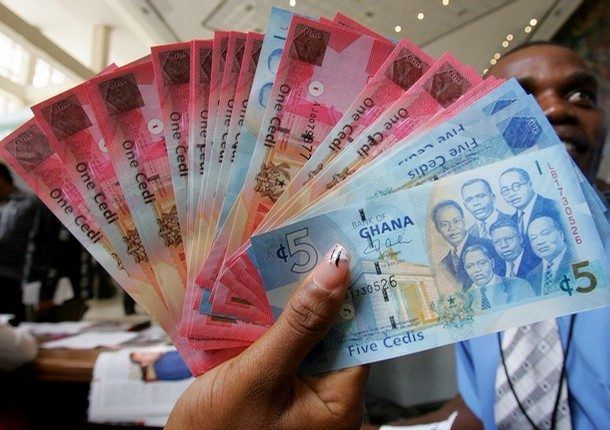The Ghanaian Cedi has experienced notable appreciation against major international currencies, particularly the US dollar, as of April 30, 2025. Data compiled from Cedirates.com, a reliable source for currency information in Ghana, reveals a strengthening Cedi across various exchange platforms, including forex bureaus and the interbank market. This positive trend signifies a potential boost for the Ghanaian economy, impacting import prices and potentially influencing inflation. The observed appreciation suggests improved market confidence in the Cedi and potentially reflects positive economic developments within Ghana.
Focusing on the US dollar, the Cedi’s buying rate stands at GHS14.20, while the selling rate is GHS14.89, according to Cedirates.com. This indicates that individuals can purchase one US dollar for GHS14.20 and sell one US dollar for GHS14.89. At forex bureaus, the rates are slightly different, with a buying rate of GHS14.70 and a selling rate of GHS15.30. This variation reflects the dynamics of the open market, where rates can fluctuate based on supply and demand. The interbank market, which involves transactions between banks, shows a tighter spread, with a buying rate of GHS14.24 and a selling rate of GHS14.26. This narrower margin is typical of interbank transactions due to the larger volumes involved.
The Cedi’s strength is also evident against other major currencies like the British pound and the euro. Against the pound, the average buying rate is GHS18.93, and the selling rate is GHS20.02. For the euro, the buying rate averages GHS16.07, while the selling rate is GHS17.08. These figures indicate the relative value of the Cedi against these currencies in the broader exchange market. The Bank of Ghana’s interbank rates for the pound and the euro stand at GHS19.10 and GHS16.25, respectively. These official rates serve as a benchmark for the market and reflect the central bank’s assessment of the currency’s value.
Money transfer services offer competitive exchange rates for remittances from abroad. LemFi and Afriex, two prominent money transfer operators, provide attractive rates for sending money from the US or the UK to Ghana. For dollar transfers, LemFi offers a rate of GHS14.31 per dollar, while Afriex provides a more competitive rate of GHS13.32 per dollar. This difference highlights the competitive landscape of the remittance market and the potential savings for consumers using these services. Similarly, for pound transfers, LemFi offers GHS19.16, and Afriex provides GHS17.95 per pound. For euro transfers, Afriex offers a rate of GHS15.25 per euro, while LemFi’s rate is GHS16.20 per euro. These varying rates emphasize the importance of comparing options before sending money internationally.
Digital subscription services, including popular platforms like Netflix, Spotify, and Apple Music, utilize a standard exchange rate for payments made via Visa and Mastercard. Currently, this rate stands at GHS15.30 for both Visa and Mastercard transactions. This standardized rate simplifies the payment process for users and provides a consistent exchange rate for these services.
In summary, the Ghanaian Cedi’s appreciation against major currencies like the US dollar, British pound, and euro signifies positive developments in the Ghanaian economy. The strengthening Cedi across various exchange platforms, including forex bureaus, the interbank market, and money transfer services, suggests improved market confidence and potential benefits for consumers. The competitive rates offered by money transfer operators like LemFi and Afriex provide opportunities for cost savings on international remittances. Moreover, the standardized exchange rate for digital subscriptions simplifies payments for users of popular platforms like Netflix, Spotify, and Apple Music. These trends collectively reflect a positive outlook for the Ghanaian Cedi and its role in the country’s economic landscape.














